CAMFED at the Regional Child Rights Advocacy seminar in Harare
Child rights at the heart of the development agenda
On August 16, 2024, Shungu Gwarinda, CAMFED’s Executive Director – Africa, Phineas Muchenjekwa, CAMFED’s Portfolio Implementation Manager, and Clemence Nhliziyo, CAMFED Zimbabwe’s Policy and Advocacy Manager, joined the Regional Child Rights Advocacy Seminar in Harare, hosted by the Child Rights Network for Southern Africa (CRNSA), the Southern African Development Community (SADC) Parliamentary Forum, the Southern African Council of Non-Governmental Organizations and their strategic partners.
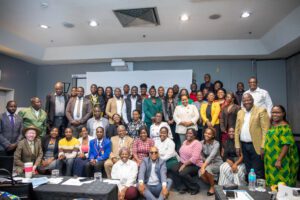
Group photo of participants in the Child Rights Seminar
The seminar took place in the lead-up to the 44th SADC Heads of State Summit with the aim of creating broader awareness of the injustices children face, and generate political will and commitment to the prioritization of child rights in the region.
This includes the adoption of the SADC Protocol on Children as a regional instrument, supporting member states to foster a Community fit for children.
If we are truly committed to building a prosperous, equitable, and just future for our region, we must place the needs and rights of children at the very heart of our development agenda. Children are not just the future - they are the present.Hon Dr. Torerayi Moyo, Minister of Primary and Secondary Education, Zimbabwe
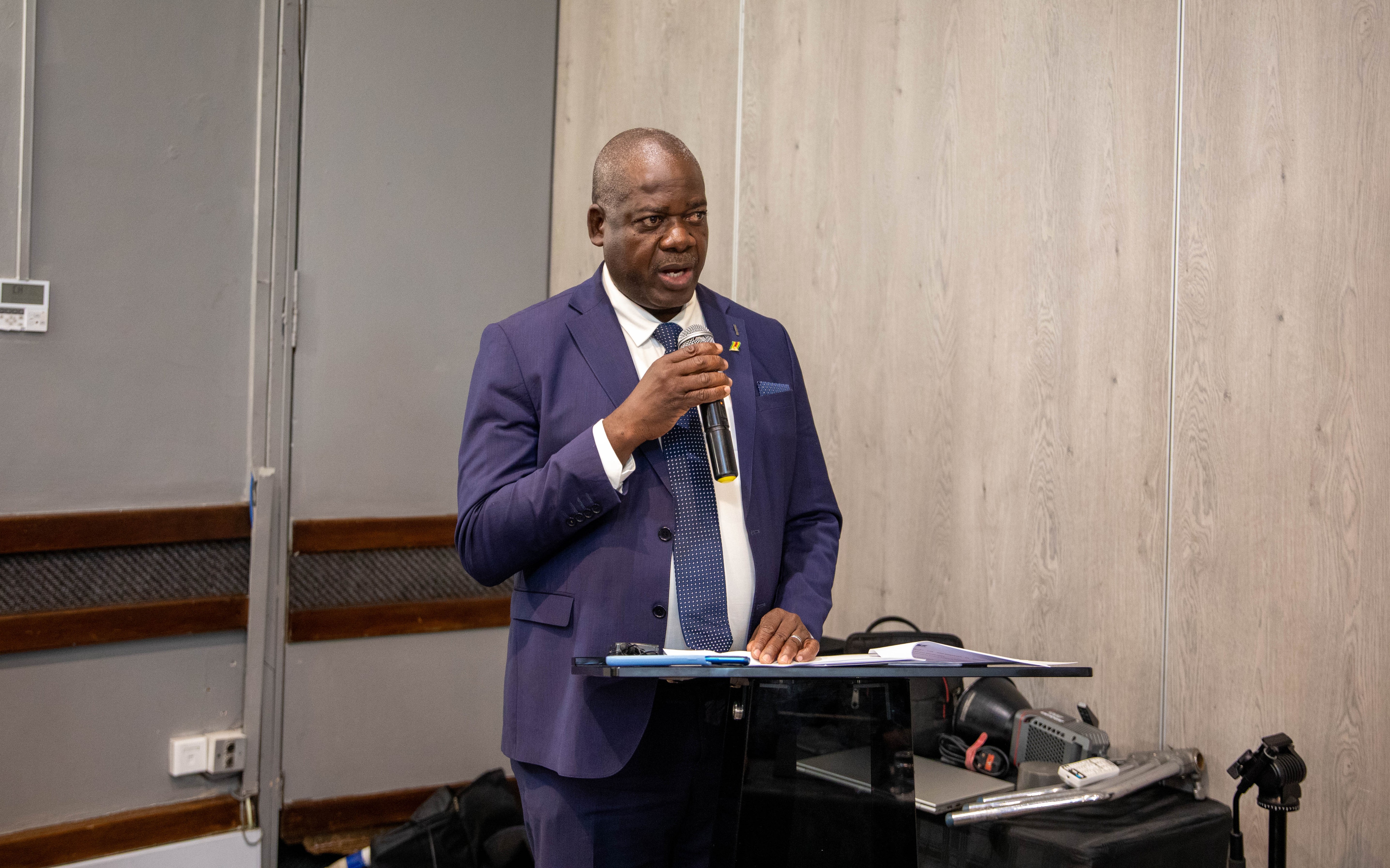
The Minister of Primary and Secondary Education in Zimbabwe officiated at the seminar.
In his address, the Hon. Dr. Moyo stated that many SADC countries have made commendable strides in recent years to improve the lives of children. Progress has been seen in access to education, improving child health outcomes and strengthening social protection systems. However, the region continues to face significant challenges and barriers to the realization of children’s rights. He pointed out that poverty, malnutrition, violence, exploitation and lack of access to quality services persist as challenges that undermine the wellbeing of far too many children.
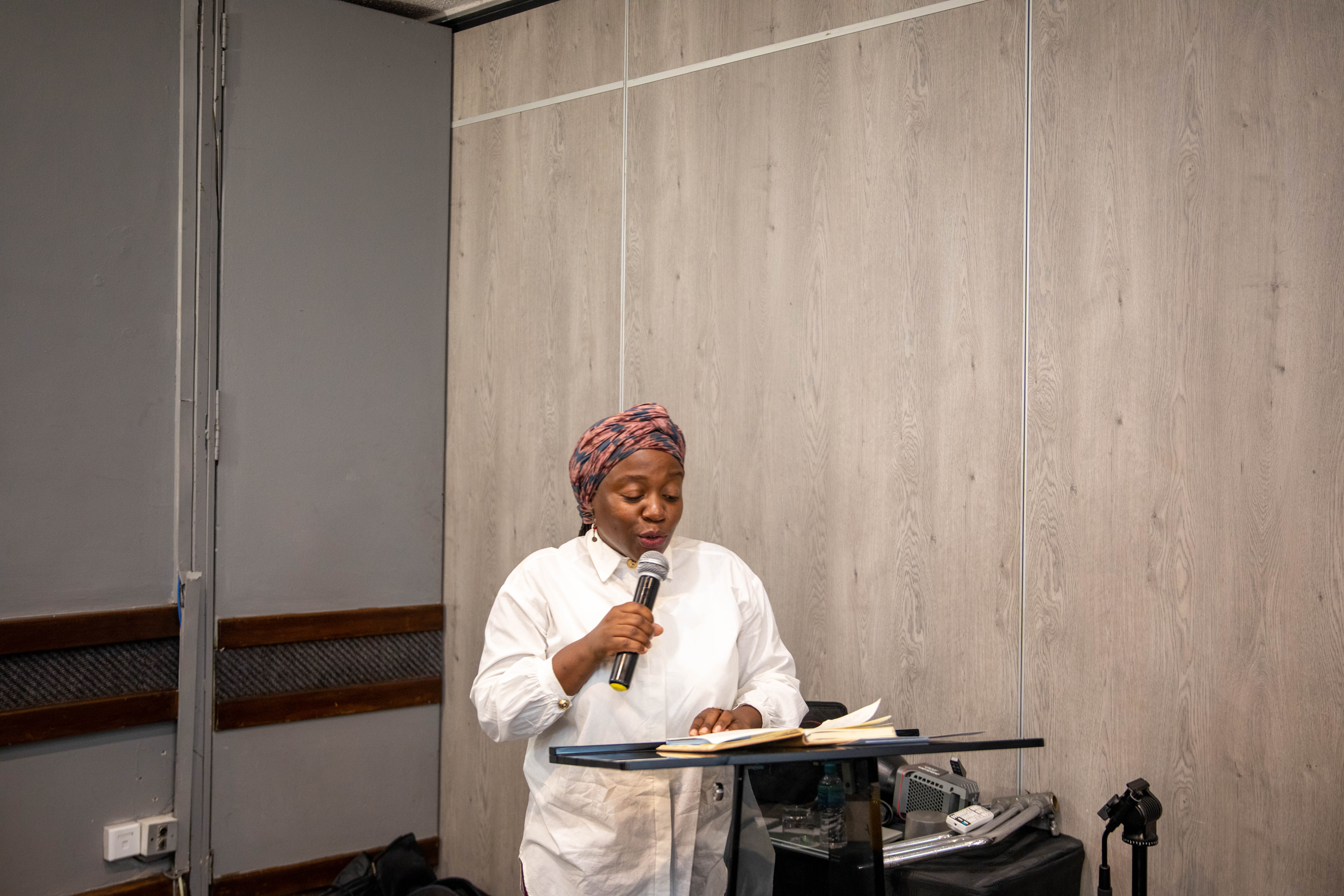
CAMFED’s Executive Director - Africa pledged her support for the regional agenda
In her solidarity remarks, Dr. Shungu Gwarinda underscored that CAMFED will work with CRNSA to advocate for child rights in the region — especially the right to education. She pledged CAMFED’s support for ratification of the SADC Protocol on Children’s Rights by SADC countries.
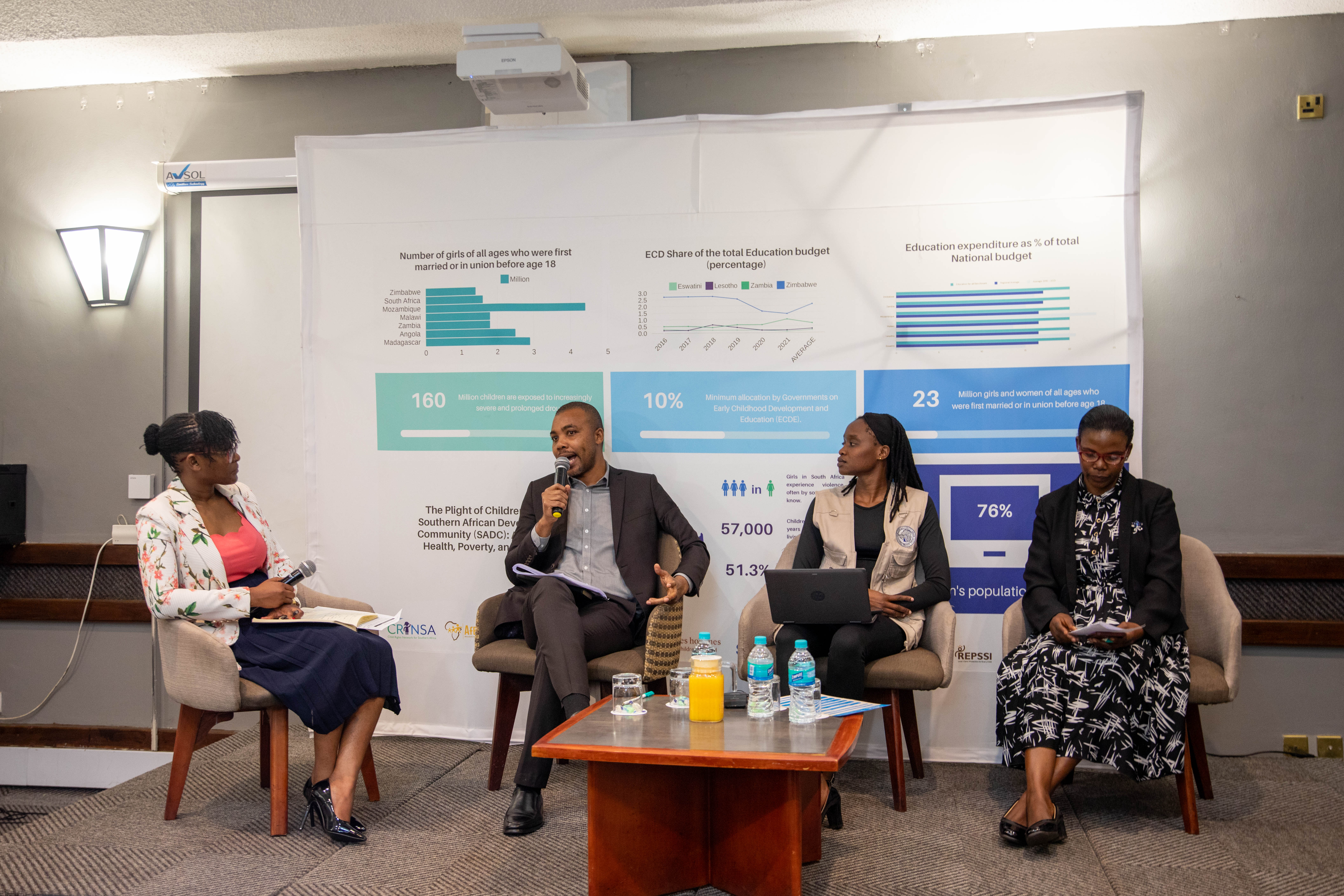
CAMFED Zimbabwe’s Policy and Advocacy Manager spoke on ECDE
The panel addressing Early Childhood Development and Education (ECDE) included the Forum for African Women Educationalist Zimbabwe (FAWEZI) and the TRANAC Consortium. It focused on what is working, gaps, and key advocacy asks. Clemence Nhliziyo emphasized the importance of working towards international standards for ECDE and education in general, including the Continental Education Strategy for Africa (CESA 16-25), which identifies ECDE as “the next frontier for Africa to realize sustainable education,” and Sustainable Development Goal 4.2 to deliver quality early childhood development care and pre-primary education to every child.
Making Good on Education Investment Promises
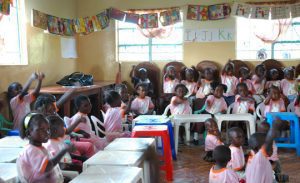
Inequalities and disparities in development and learning start in early learning and often persist throughout life. Access to inclusive and quality early childhood development and education is the key to children’s wellbeing and holistic development, to foundational and lifelong learning, gender equality and social equity, and sustainable development. Over the years, a number of Declarations have committed governments to investment targets, none of which are currently being reached in the SADC region, where ECDE remains extremely underfunded. Clemence cited:
- the Incheon Declaration of 2015 which urged nations to allocate 4-6% of GDP and/or at least 15-20% of total public spending to education.
- the Kenyatta Declaration of 2021, which saw African leaders committing 20% of their national budgets to education in the next five years.
- the UN 2022 Transforming Education Summit, where world leaders committed to fully finance education.
- the 2022 Tashkent Declaration and Commitments to Action for Transforming Early Childhood Care and Education (ECCE), which calls for governments to invest 10% of national education budgets towards early ECCE, so that all children can reach their full potential.
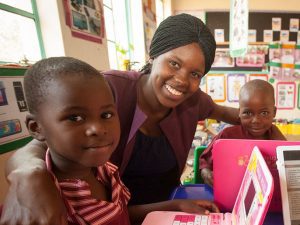
In Zimbabwe, the sector is currently receiving only 2% of the 2024 national education budget. Clemence emphasized the need for domestic resource mobilization and child-centric budgeting (rather than child-related programs being cut in austerity drives) to build sustainability into education programs.
Alongside taxation, community philanthropy also plays an important role, as evidenced by the work of CAMFED, whose graduates in the CAMFED Association join forces with community champions to financially support over 3x as many students through school as international donor partners.
Many are training as ECDE teachers, and filling gaps in rural communities by opening ECDE centers.
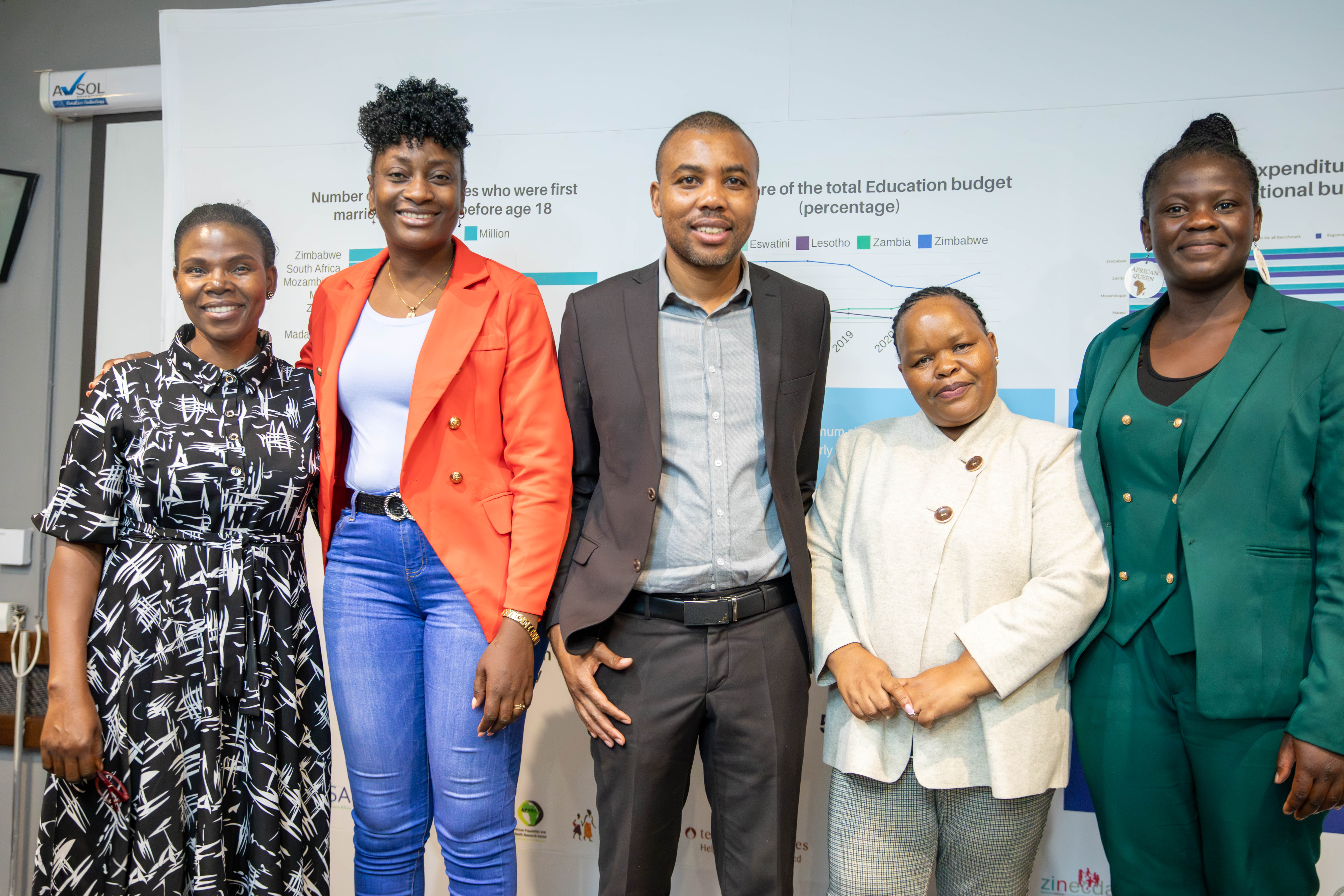
Discussing the SADC Protocol on Children
An expert panel made up of representatives of CRNSA, the African Committee of Experts on the Rights and Welfare of the Child (ACERWC), the African Population and Health Research Center (APHRC) and Save the Children, moderated by CAMFED’s Clemence Nhliziyo, deliberated on the importance of ratifying the SADC Protocol on Children. Panelists discussed strategies for ensuring that member states adopt the Protocol, calling for greater advocacy by partners and civil society organizations in member states.
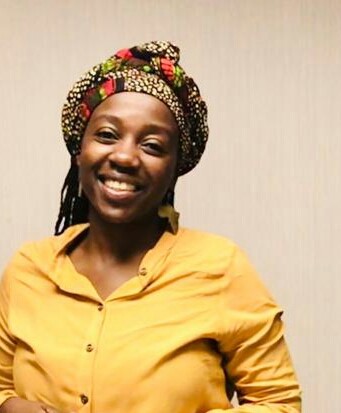
We share a collective responsibility to ensure every child is in school. The transformative power of education is essential for shaping a better future for our children and for the progress of the SADC region and the continent as a whole.Dr. Shungu Gwarinda, CAMFED Executive Director - Africa
